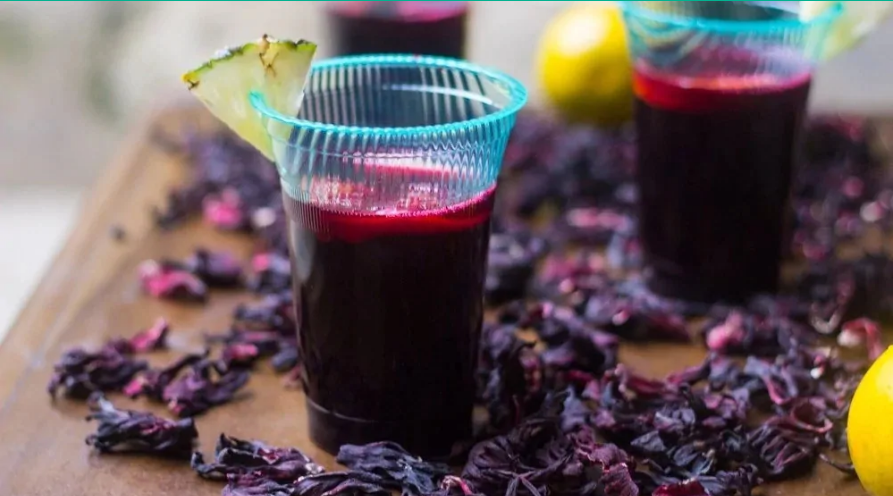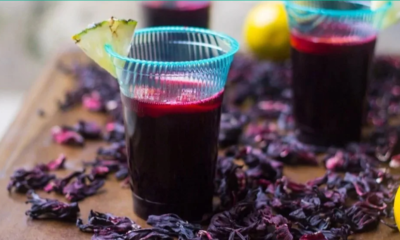Health
New Study Links Popular Nigerian Drink, Zobo To Pregnancy Loss
By Emily Ogah

Zobo, a popular Nigerian beverage, made from the dried calyxes of hibiscus flowers, despite its many benefits, can pose certain risks when consumed during pregnancy, according to several health experts.
The drink which is cherished for its vibrant colour, refreshing taste, and numerous health benefits, is rich in antioxidants, vitamins, and minerals. Zobo is often consumed as a delicious and nutritious alternative to sugary drinks.
Medical doctors and researchers, the world over, have linked the consumption of this drink to an increased risk of losing a pregnancy, especially at its initial stage.
In a fact-check piece by Dubawa, several experts agreed with the claim that the consumption of zobo during pregnancy could lead to a higher risk of miscarriage.
A matron at Novelty Hospital, Abuja, Grace Odoma, speaking on the matter, told Dubawa that zobo contains an agent that inhibits the production of oestrogen which is vital to fertility.
“Oestrogen is a female hormone which helps to regulate the secretion of gonadotropin hormone which is required for fertility to take place, also it helps in maturation and maintenance of the uterus which houses the foetus.
This zobo contains an agent that inhibits the production of estrogen how ever leading to numerous side effects such as low birth weight, miscarriages (preterm labour for 24 weeks gestation) and can cause abortion leading to bleeding as the uterus will contract uncontrollably leading to excess loss of blood,” she noted.
A gynaecologist at the National Hospital, Abuja, Dr Jeremiah Agim, provided links to two studies that showed that hibiscus sabdariffa (zobo) relaxes the uterus instead of causing contractions. He said there had been arguments that it is the pineapple in the zobo that causes the contraction.
Although these studies also show that pineapples have a contractile effect on rat and human pregnant myometrial muscle in vitro, the expert noted that further studies were needed to fully establish this claim.
Another health practitioner, Dr Lynda Effiong-Agim, who is also a medical officer at Chivar Specialist Hospital, Abuja, agreed with other experts, however, noting that the study on rats alone was enough to be cautious with its use during pregnancy.
“It should be avoided in pregnancy. Animal studies have shown the relationship between consuming zobo (hibiscus sabdariffa) and miscarriage. Although human studies have yet to be conducted, that alone is enough reason to be cautious,” she said.
Send Us A Press Statement Advertise With Us Contact Us
And For More Nigerian News Visit GWG.NG






